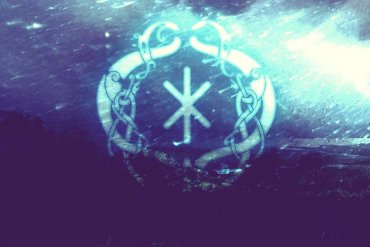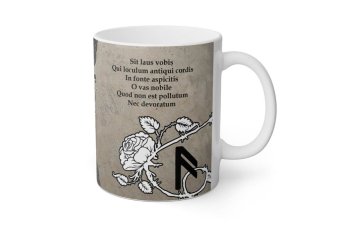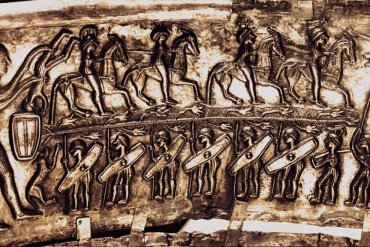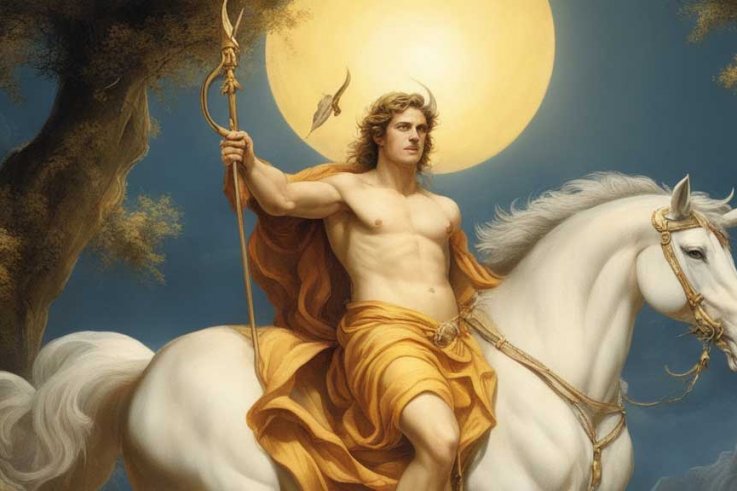The Rose of the world Who dreamed that beauty passes like a dream? For these red lips, with all their mournful pride, Mournful that no new wonder may betide, Troy passed away in one high funeral gleam, And Usna’s children died. We and the labouring world are passing by: Amid men’s souls, that waver and give place Like the pale waters in...
The Greek philosopher Heraclitus had said: “A hidden connection is stronger than one we can see.” Otto Maier was always fascinated with Time. Things occupy space—but how many of them there are (or could be) belonging to time? If you take off the face of a clock you won’t find time there, only human fabrication. Those numbers, circling round, make time almost...
The exploration of ancient symbols often reveals hidden threads connecting diverse cultures. In the Maier Files Chronicles, we delve into the higher meaning of the swastika, tracing its roots through various traditions and shedding light on its symbolism beyond conventional interpretations. Herman Wirth’s research on the Ur-Nordic races in Germany serves as a guiding beacon, unraveling the swastika’s significance in a broader, universal context. The Hyperborean Race: Unveiling the Nordic Origin Wirth’s groundbreaking work challenges the conventional view of the […]...
Trying to understand one of the many hidden histories and layers within Maier files is trying to understand the Grail quest and its influence on many even nowadays. The Arthurian legends are an obvious start. The fabulous stories of King Arthur and the Grail are currently so well known that they extensively researched and remarked upon by many different authors and researchers....
Hagal is the rune of a goal and confrontation with past patterns.
Ernst Winkler: “After reading your book, herr Maier, I am hardly further along concerning the heart of the question.” Otto Maier: “How by the devil, my dear Ernst! . . . Do you not read the white of works? Certainly, those who read only the black of a writing will not have seen anything decisive in my book; but you, read the white, read what I did not write and what is there nonetheless; and then you will find it.” […]...
The sator a repo formula was well known throughout the ancient and medieval worlds, and in fact, known as the “Devil’s latin” or the “Devil’s Square”. It remained quite popular in Scandinavia into the 19th century as protection against theft and various illnesses. The magical effect of the formula lies in the fact that if properly spelt and laid out, it constitutes...
Legend tells us that one day Ilias, founder of the city of Troy, was asleep and had an extraordinary dream that the gods were communicating with him. When he woke up he found nearby a statue of a woman holding a shield and carrying a spear. It was the sacred statue of Pallas Athena, the Palladium. We know from Plutarch that in...
When it is exclaimed that contradictions may very well be true, numerous analytic philosophers will screw up their face into an appearance of discomfort, and say ‘But I just don’t see what it could be for a contradiction to be true’. They could mean numerous things by this. ‘See’ might just mean ‘understand’, by which case they might be complaining that traditional two-valued semantics leaves no room, as it were, for something to be both true and false. Such a […]...
Unveiling the Enigmatic Wisdom: Deciphering the Esoteric Meaning of “Sit laus vobis Qui loculum antiqui cordis In fonte aspicitis. O vas nobile Quod non est pollutum Nec devoratum In saltatione antique spelunce. Et quod non est maceratum In vulneribus antiqui perditoris” In the labyrinthine world of ancient texts and cryptic symbols, there exists a riddle (Hildegard von Bingen) that has tantalized the...
Occult knowledge and ancient wisdom. What was Parsifal seeking in Wolfram Eschenbach’s poem that was referred to as “the Grail”? A stone ? The Lapsis exillis? It is also said that a pagan astrologer read the mystery of the Grail in the stars: ” Flegetanis, the heathen saw with his own eyes in the constellations things He was shy to talk about,...
Apollo, the Bearer of Light, patron of poets and travellers, would never abandon his own in distress. He himself had become an outlaw, even seen as the Devil. But as he was not the Devil, he watched over, in accordance with the celestial laws, the forests and the routes. On the bridle of his charger, he left his carbuncle shining like the sun. When one of his minstrels died, he carried him above the clouds towards the “Mountain of Assembly […]...













